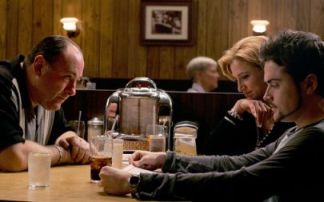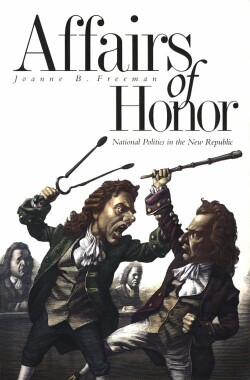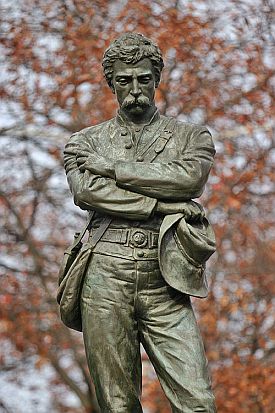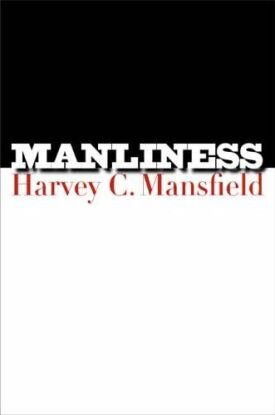So Long, Tony
The final scene of the final episode of the long-running HBO hit The Sopranos inspired thousands of fans to go to the Internet’s sounding boards to complain about the choice of the series’s creator, David Chase, to end it with an inconclusive blackout. For several minutes previously, he had led audience expectations up the garden path to a hecatomb of slaughter in a suburban diner before pulling the plug at what ought to have been the climactic moment. What made it worse was that Tony Soprano (James Gandolfini) and his family were left having dinner together, all of them happy — and happy with each other — for perhaps the first time in the eight years and seven seasons of the show’s run. This was obviously the perfect dramatic moment for the mass execution that Chase’s camera had seemed to be setting us up for.
Yet I think he had several good reasons for depriving us of it. Had, for a start, the complainers forgotten how many times he has similarly teased them before? The Sopranos is nothing if not mock heroic, and the mock heroic’s characteristic mode is bathos. We expect high drama, if not heroism, and we get farce. In the final episode, alone, there were several examples. We were invited to revel in the macabre comedy of the death of Tony’s gangland rival Phil Leotardo (Frank Vincent), his head run over by his own SUV and producing a sickening crunch as it disturbed the even ride of his grandchildren, strapped into their car seats above. In another SUV — an inherently comic vehicle — Anthony Jr. (Robert Iler) was seen engaging in sexual activities with a girlfriend while parked on a lonely country road. We could feel the subtextual undertow of the teen slasher movies, in which the couple would be doomed just by being there, as well as the anticipation as smoke begins seeping into the cab of the vehicle through its air vents. Aha! Here must be the answer to the question posed implicitly in the penultimate episode when Tony told his wife Carmela (Edie Falco), “They never touch the family.”
Does such gangland chivalry still apply, or are we now living in a more brutal world?
We never find out here any more than we do in the disputed ending. It’s all a false alarm. The smoke comes from A.J.’s having parked the SUV on a pile of dead leaves, which its overheated catalytic converter has then set fire to. As the kids scramble out of the car and down the hill, they watch as it catches fire and explodes, the very image of Mafia murders by car bombs in The Godfather and other films. Except that it’s not a Mafia murder but a bathetic suburban accident caused by heedless affluence.
“I’m depressed,” moans A.J. when his parents scold him for his carelessness. “I’m supposed to worry about catalytic converters?” That’s The Sopranos in a nutshell: The heroic turning into a mockery of itself — usually with the help of therapeutic psychobabble — at (almost) every turn, while still attempting to cling to its heroic dignity.
The Sopranos
is also soap opera — perhaps the greatest soap opera ever. Way back in season one, in 1999, Chase and his team had penned a hilarious exchange between the gangster and aspiring screenwriter, Christopher Moltisanti (Michael Imperioli), and his fellow gang member, popularly known as Paulie Walnuts (Tony Sirico), in which Christopher tries to explain to Paulie what a character’s “arc” is.
“Like, everybody starts out somewheres, then they do somethin’, or somethin’ gets done to them that changes their life,” he says. “You see the arc? He starts down here,” holding his hand in front of his face, “and he ends up here,” moving his hand upward. “Where’s my arc, Paulie?”
It takes Paulie to point out to him the difference between art — which he calls “make-believe” — and life.
“Hey, I got no arc, either. I was born, grew up, spent a few years in the Army, few more in the can — and here I am, a half a wise guy. So what?”
Of course, what Christopher is looking for is art’s meaning in his life. But life is more like soap opera than art. It tends to flatten out those arcs of meaning because its characters have to keep coming back and doing the same things over and over again, week after week, season after season. They start out here and end up — nowhere, just as the series itself does. It was the genius of David Chase from the start to redeem soap opera for serious art, as Hamlet redeemed the popular revenge tragedy of the Elizabethans, and in a similar way. As Journey put it in the song, “Don’t Stop Believing,” that Tony plays on the diner’s jukebox during the final sequence:
Some will win, some will lose
Some were born to sing the blues
Oh, the movie never ends
It goes on and on and on and on
Actually, the movie does end, as Christopher was aware. It’s life — and soap opera — that goes on and on and on and on, which is why we love it. Now it can go on and on even when it’s off. What more perfect ending than to leave them all in the diner, their mouths stuffed with the best onion rings in the state of New Jersey, with such an obvious artifice that we can’t help being reassured? As always, the danger and the drama dissolve into bathos and absurdity before they can produce anything so uncongenial to our post-heroic world as meaning.
And yet I think there was a resolution, or arc, though perhaps an inadvertent one, that was no less emphatically inscribed for being (so far) unnoticed. It came with A.J.’s announcement that he intended to join the Army. This was a stunning reversal of form for that whiny youth, who had spent the last several weeks battling depression after a break-up with a fiancée, attempting suicide (not very persuasively), and moaning about all the suffering in the world. Now his decision presented his parents with the choice they had been avoiding for eight years. Are they still part of the old honor culture of their Sicilian forebears, or have they definitively entered the contemporary world of consumerist America, a world of feelings, individualism, and therapy?
Faced with the unavoidable choice at last, they did not hesitate. Rather than allow A.J. to become “cannon fodder” in Iraq, as Tony puts it, they are prepared to bribe him with a new BMW and a busy-work job on a trashy movie even worse than Cleaver, the sole creative product of the long search for an “arc” of his now-deceased cousin, Christopher — a movie that Tony so hated that he ultimately killed Christopher. A.J. happily takes the bribe.
Tony has, of course, been ambivalent about the mob’s honor culture from the beginning. That’s the point of his visits to his shrink, Dr. Melfi (Lorraine Bracco). His killing of Phil also removed what the series has presented to us as the only unambiguous representative of the old, unforgiving macho standards left in gangland: The man who had ordered the torture and murder of Vito Spatafore (Joseph Gannascoli) out of disgust for his homosexuality, and who had lost all respect for his former boss, Johnny “Sack” Sacramoni (Vincent Curatola), because he wept as the feds dragged him away from his daughter’s wedding. The only reason that peace is restored and Tony prevails is that Phil’s own men have come to see him as dangerously extreme — a throwback. The real farewell to the old world comes with Tony’s visit to his senile uncle Junior (Dominic Chianese) in the nursing home: “You and my dad, you two used to run North Jersey,” says Tony with a tear in his eye.
“We did?” says the uncomprehending capo. “That’s nice.”
But it’s all over now. Tony’s was the only ending possible for an American hero for more than half-a-century. Like the last of the cowboys riding into the sunset, he must not die but just fade away. And for the same reason: His world is past. There were heroes in it, we admit; men who were larger than life. We can’t let them go without a pang of regret. But we want them gone. Them and all they stood for.
Tony Soprano was such a hero. He wasn’t a good man, but he was a free man — free not by constitutional arrangement but as the heroes of old were free: because they had mastered other men by the strength of their arms and the keenness of their wit. Blowing him away would, paradoxically, have brought him and that world back. It would have acknowledged that the heroic lives on at a time when so many of us — like Tony and Carmela contemplating A.J. in uniform — want it and its terrifying demands on us gone more than ever.
So let him disappear while he’s happy in his choice of the comfortable, unheroic age that has made his heritage — and, to a disturbing extent, that of his country and his country’s wars — obsolete.
Discover more from James Bowman
Subscribe to get the latest posts to your email.




